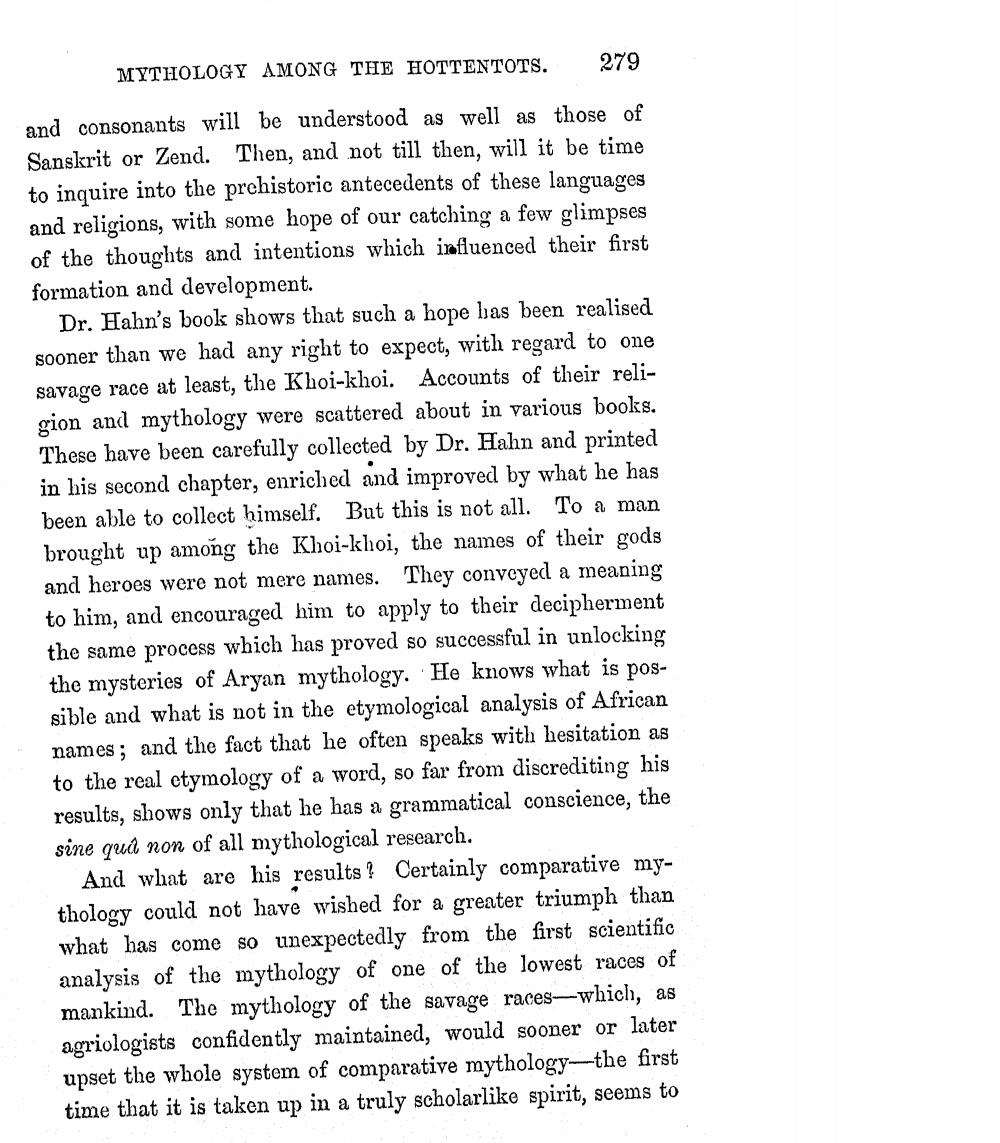________________
MYTHOLOGY AMONG THE HOTTENTOTS.
279
and consonants will be understood as well as those of Sanskrit or Zend. Then, and not till then, will it be time to inquire into the prehistoric antecedents of these languages and religions, with some hope of our catching a few glimpses of the thoughts and intentions which influenced their first formation and development.
Dr. Hahn's book shows that such a hope has been realised sooner than we had any right to expect, with regard to one savage race at least, the Khoi-khoi. Accounts of their religion and mythology were scattered about in various books. These have been carefully collected by Dr. Hahn and printed in his second chapter, enriched and improved by what he has been able to collect himself. But this is not all. To a man brought up among the Khoi-khoi, the names of their gods and heroes were not mere names. They conveyed a meaning to him, and encouraged him to apply to their decipherment the same process which has proved so successful in unlocking the mysteries of Aryan mythology. He knows what is possible and what is not in the etymological analysis of African names; and the fact that he often speaks with hesitation as to the real etymology of a word, so far from discrediting his results, shows only that he has a grammatical conscience, the sine qua non of all mythological research.
And what are his results ? Certainly comparative mythology could not have wished for a greater triumph than what has come so unexpectedly from the first scientific analysis of the mythology of one of the lowest races of mankind. The mythology of the savage races—which, as agriologists confidently maintained, would sooner or later upset the whole system of comparative mythology--the first time that it is taken up in a truly scholarlike spirit, seems to




